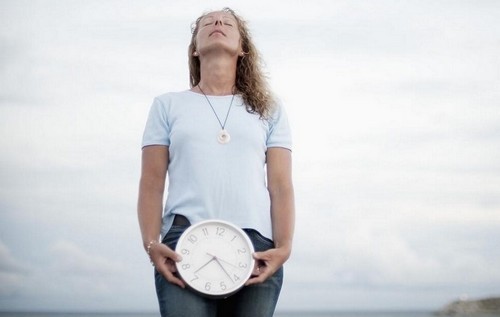A joyful event happened in your family – a baby appeared, and the attention of all loved ones is occupied only by this little man. But the heroine of the happy moment – mommy, will soon begin to be disturbed by some things that create moral and psychological discomfort.
One of the main questions is – when will the periods after childbirth go? And it is not surprising that this topic haunts the young woman in childbirth. To understand in more detail and calm down, you need to know the reasons why menstruation may not occur according to the cycle.
There may be several options. And from how much time there are no periods, you should think about going to the doctor.
The effect of breastfeeding
Pregnancy of every woman proceeds with hormonal restructuring of the body, as a result of which, menstruation ceases to “visit” women every month, right up to childbirth.
The process of restoring the cycle and the first menstrual period after childbirth occurs depending on various reasons. When breastfeeding, a hormone is produced in the mother’s body – prolactin, which actively functions and is a “suppressor” of the menstrual cycle. Normally, until the woman stops breastfeeding, her periods may not appear.
Artificial lure
If there is no breastfeeding, in a young mother in about a month and a half, all the functions of the female body should be restored, and menstruation should appear. If there is no cycle after the specified time, you should consult a doctor. Women should not be confused with the usual first menstruation after childbirth with lochia – blood discharge from the uterus due to damage during childbirth, which can be released 6-8 weeks after resolution from the burden.
There are frequent cases when, during breastfeeding, the mother simultaneously has irregular periods after delivery. This fact is also not worth fearing. It is necessary to worry if health is worsening, plentiful periods appear. But after the first cycle, the uterus acquires a more physiological location in the woman’s body, and menstruation occurs less painfully and regularly.
When to worry?
You should be aware that after the termination of breastfeeding, the “rhythm” of the cycle and the volume of secretions may change. Such a result occurs with almost every woman, and this should not be scared.
After about 1-1.5 months, cycle rates should “return” to normal and abundant periods will decrease. In cases where a woman feels pain, and the state of health changes for the worse, you should definitely share it with your doctor. The restoration of the normal menstrual cycle is affected by: lack of stress, proper diet, mother’s daily routine. The causes of the deterioration may be chronic diseases, childbirth with complications, environmental conditions, climate, etc.

Hypomenorrhea – what is it?
Poor menses after childbirth – hypomenorrhea, are associated with hormonal changes in the entire female body. The reason may be the refusal to breastfeed the baby or rare feeding with the use of artificial feeding. The reason is the low secretion of the hormone prolactin, which is not able to completely suppress the activity of the ovaries. In cases where meager periods have a painful effect and last a long time, a female doctor should be visited. Complications and exacerbations of the gynecological system, impaired activity of other organs are possible.
Also, one of the reasons may be a complex course of childbirth and intrauterine intervention – curettage, surgical intervention in the birth process, etc. Particular attention should be paid to young mothers if meager periods are accompanied by a very unpleasant odor, fever. In this case, you should immediately consult a doctor. The specialist needs to be informed about the nature of the secretions, how long they last, and how plentiful they are. One of the common causes of scanty discharge may be a violation of the ovarian function, problems with the pituitary gland.

Reasons and treatment
In the treatment of such pathologies, hormone replacement therapy is used, that is, hormones are used that can replace the lack of necessary for the body in the glands and pituitary gland. Specialists prescribe thyrotropic, glucocorticoid drugs. A complex of therapy is observed, in which gynecologists and endocrinologists take part.
Impaired ovarian function may result from external factors – ecology, unhealthy diet, being overweight, disruption, physical activity, overwork, medication, and climate change. Internal factors include malfunctions in the hormonal system, inflammation of the female genital organs, diabetes mellitus, problems with the endocrine system, adrenal glands, etc.
Ovarian function may be impaired with prolonged use of oral contraceptive drugs, improperly selected independently or by a doctor. With a changing climate, not only the postpartum period, but also the normal cycle may change. At the same time, the volume of discharge also changes.
Factors of influence on the mother’s body
In the process of restoring menstruation after childbirth, in addition to medical care, a woman also needs to monitor her physical and moral condition. It is necessary to engage in therapeutic exercises, to choose the right healthy foods. A balanced intake of all necessary trace elements and vitamins, restores the female body weary after childbirth. P
fresh air flyers are useful not only for the baby, but also for the young mother. The emotional state of the mother is directly related to the calmness of the child. With the right approach to everything around, positive emotions, clean air and a healthy diet will help to forget about health problems. And in a couple of years, perhaps another new family member will appear.
Breastfeeding is not a hindrance!
Many young mothers are sure that while the baby is breastfeeding and there are no regular periods after childbirth, there is no chance of becoming pregnant. However, around the 10th week, ovulation begins, which means that conception can occur. Therefore, some women in the absence of menstruation after childbirth, should think, perhaps this is a new pregnancy. The main thing is not to panic.
Since it happened and the spouses were careless, it means that the health of the mother and the unborn child should be preserved. A set of measures is needed to strengthen the body of mom and with special care to prepare for new births. A woman needs not only physical, but also emotional support. This situation has great advantages.
Firstly, where there is one, there is a second. With the help of loved ones, the mother, endowed with experience after the birth of the first child, can easily cope with the second. Secondly – there is no need to bribe clothes for the second baby – since all the necessary children’s items have already been bought as an “inheritance”.



